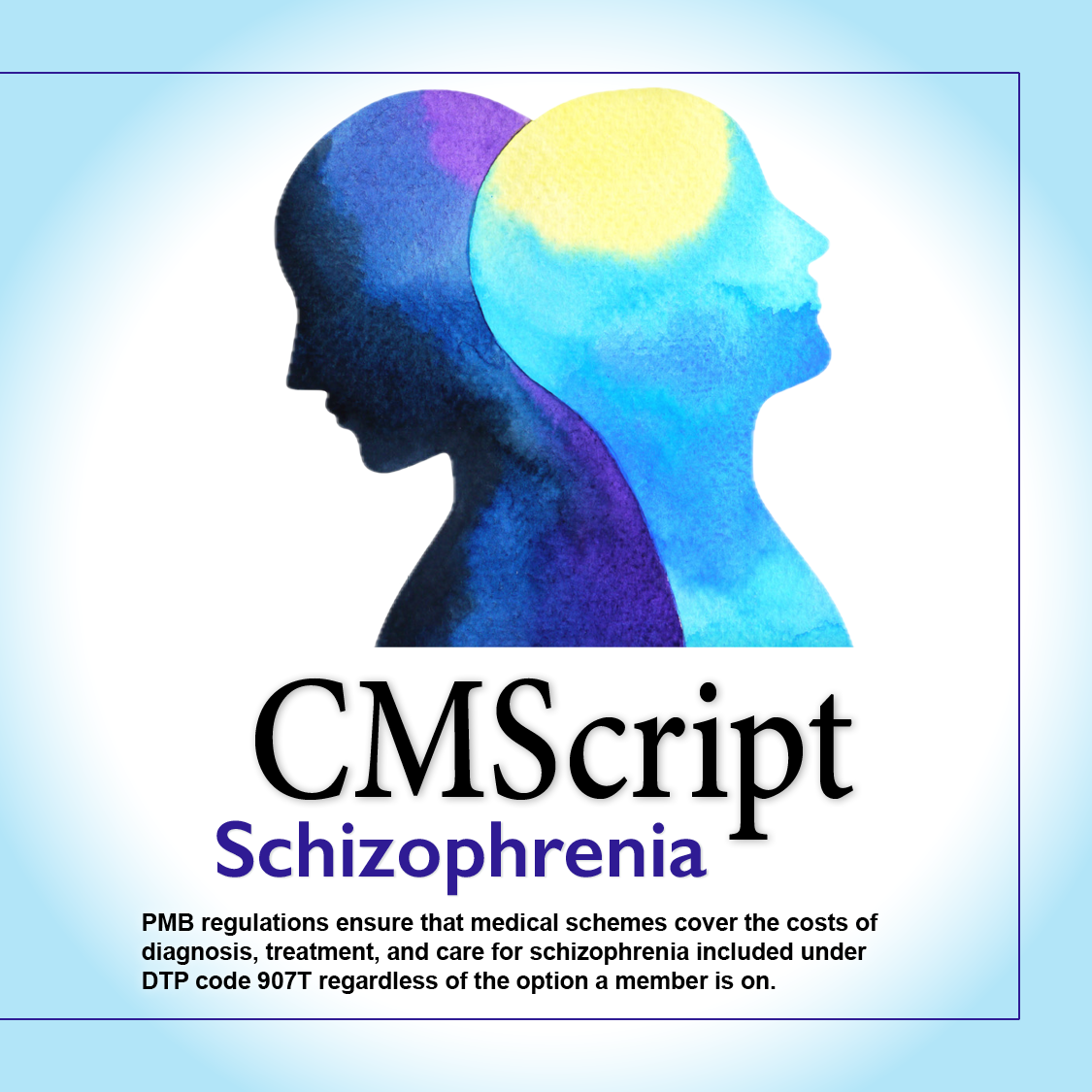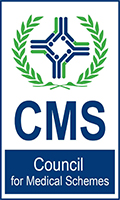
CMScript 3 of 2024: Schizophrenia
PMB regulations ensure that medical schemes cover the costs of diagnosis, treatment, and care for schizophrenia included under DTP code 907T regardless of the option a member is on.
The World Health Organization (WHO) estimates that approximately 30.8% of all years lived with disability (YLDs) are due to neuropsychiatric disorders, primarily unipolar depression (11.9%), alcohol use disorder (3.1%), schizophrenia (4.8%), and bipolar mood disorder (4.4%).
Schizophrenia impacts approximately 24 million individuals globally, representing 1 in 300 people. Among adults, the prevalence is higher at 1 in 222 people.
What is schizophrenia?
Schizophrenia is a type of chronic and severe mental disorder characterised by a profound withdrawal from reality. Individuals affected may experience hallucinations, which involve perceiving sensations that others do not, such as seeing, hearing, or feeling things that are not present. This disorder is marked by a gradual deterioration of personality, emotional instability, and various other psychotic behaviours.
What is covered under prescribed minimum benefits (PMBs) for schizophrenia?
The PMB Regulations determine that the diagnosis, treatment and care of a disease must be funded in full by the medical schemes.
The PMB Regulation include Schizophrenia under the Diagnostic and Treatment Pair 907T – Schizophrenic and paranoid delusional disorders. The treatment for this DTP is specified as Hospital-based management up to 3 weeks per year.
In-hospital management may include electroconvulsive therapy, medicines (e.g. antipsychotics, antidepressant medication and mood stabilisers), and consultation with other health professionals such as social workers.
Schizophrenia is also included in the PMB Chronic Disease List (CDL).
The PMB chronic disease list algorithm for treatment includes antipsychotics, antidepressants and mood stabilisers such as lithium and sodium valproate. Antipsychotics may be taken orally or in the form of an injection.
In addition to medication, medical schemes may issue a care plan for out-of-hospital management of schizophrenia which also includes consultations with a psychiatrist and/or general practitioner and other healthcare providers which your doctor may refer you to and will assist in managing the condition such as an occupational therapist.
Although schizophrenia is a PMB condition, it is important to remember that medical schemes can use designated service providers (DSPs). A DSP is a healthcare provider (such as a doctor, pharmacist, hospital) that is appointed by the medical scheme for the treatment or care of PMB conditions. Voluntarily opting for a non-DSP means you may have to pay a portion of the bill as a co-payment. Medical schemes may also have medicine formularies which should include medicines from all classes, and it is important to obtain the formulary information from the medical scheme and discuss this with the treating doctor. If a non-formulary drug is used, the medical scheme may charge a co-payment.
Download the CMScript here


